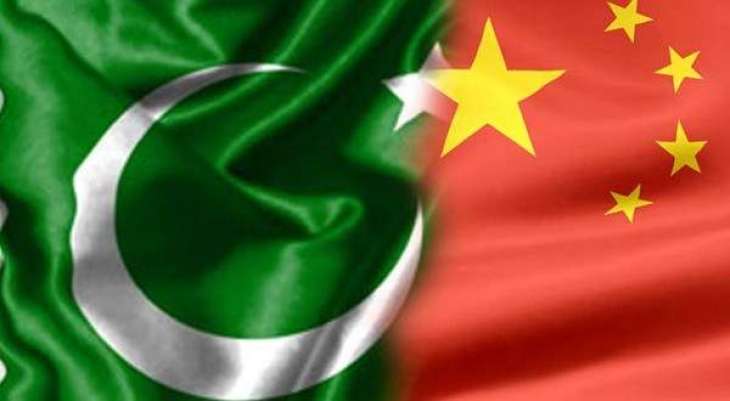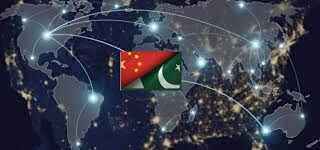
CHINA ECONOMIC NET
ISLAMABAD – Immensely impressed by the fully-digitalized economy of China, China Pakistan Economic and Business Council (CPEBC) in collaboration with Islamabad Chamber of Commerce and Industry (ICCI) organized the first World Digital Trade Summit in Islamabad recently. Multitudinous Pakistani and Chinese businessmen attended the summit.
Pakistan’s Prime Minister Imran Khan has also launched Digital Pakistan Vision, aiming to promote the digitalization of the economy. The programme has been designed for the government and the private sector to work towards a digitally progressive and inclusive Pakistan.
Pakistani government’s top leaders as well as business leaders of Pakistan give credit to China for streamlining its economy on scientific lines and believe that digital economy was the future for Pakistan since it would enable both veteran businessmen and young entrepreneurs to go global. Besides, the growth of digital economy will open up new vistas for large number of Pakistani IT professionals, because they can utilize their skills and abilities for uplift by getting a sizeable share in the growing digital business.
Pakistani business community acts in close coordination with the government in achieving this goal. They also stay focused on benefits of China’s economic policies with open arms, centering around Chinese President Xi Jinping’s vision of ‘shared global prosperity’ and ‘win-win’ strategy of interstate cooperation.
It goes without saying that Pakistan is a prime beneficiary of this ‘win-win’, shared prosperity vision. Its business community paid special attention to energy projects under CPEC as it is convinced that investments in the country’s power-generation sector carry the potential of diversifying the energy mix, moving the country away from – or lowering – its dependence on oil-based energy supplies/imports.
As for the advantages of CPEC, one is that the incumbent government of Pakistan fully owns the CPEC projects like the former government, and has put CPEC projects on fast track, with active collaboration of China.
Second, CPEC does not only carry immense socio-economic prospects for Pakistanis, it has also been leaving motivational impacts on different sectors in Pakistan. According to authentic reports, CPEC has provided around 75,000 jobs to Pakistanis since 2015 and it would create over 800,000 new jobs in different sectors up to 2030.
Apart from job creation, CPEC will change Pakistan’s business and economic landscape following the establishment of Special Economic Zones (SEZs). Certain countries have benefited a lot from SEZs since these Zones provide sufficient opportunities to the industry by clustering of economic activities and providing ample opportunities to the local labour force in the enhancement and diversification of their skills. Promotion of local entrepreneurship is an additional gain of SEZs.
To advance CPEC and the Memorandums of Understanding(MoUs) signed by the governments of China and Pakistan, the Government of Pakistan proposed the following nine SEZs: (1) Rashakai Economic Zone, M-1, Nowshera; (2) China Special Economic Zone, Dhabeji; (3) Bostan Industrial Zone (near Quetta); (4) Punjab-China Economic Zone, M-2 District Sheikhupura; (5) ICT Model Industrial Zone, Islamabad; (6) Development of Industrial Park on Pakistan Steel Mills Land at Port Qasim near Karachi; (7) Bhimber Industrial Zone; (8) Mohmand Marble City; (9) Moqpondass SEZ (Gilgit-Baltistan). These SEZs has become a top priority of both governments which are also jointly working on the development of Faisalabad, Rashakai and Dhabeji industrial areas.
The good pace and progress of CPEC projects has virtually become a FDI (Foreign Direct Investment) magnet for foreign investors to explore business opportunities under CPEC in Pakistan, as disclosed recently by Mr. Yao Jing, Ambassador of People’s Republic of China to Pakistan. According to Mr Yao, the final purpose of CPEC is to benefit society and people.
There are challenges, too. The biggest one was the negative perceptions being spread and designed by elements that don’t want the CPEC or Sino-Pakistan cooperation to flourish.
Addressing this concern, Chairman of the Pakistan China Institute (PCI), Mushahid Hussain Syed, who also serves as a senator in Pakistan’s parliament, says, “Pakistan is working towards CPEC with devotion and dedication and rejects any external pressure as it(Pakistan) is a resilient country that has resisted pressures in the past.”
As Chaudhry Muhammad Sarwar, the Governor of Punjab (the biggest province of Pakistan) unequivocally put it, the elements hatching conspiracies by negative propaganda and other devious methods won’t succeed in their nefarious designs, nor will the people and Government of Pakistan allow them to continue with their ill wishes against the rock-solid Sino-Pakistan friendship.








